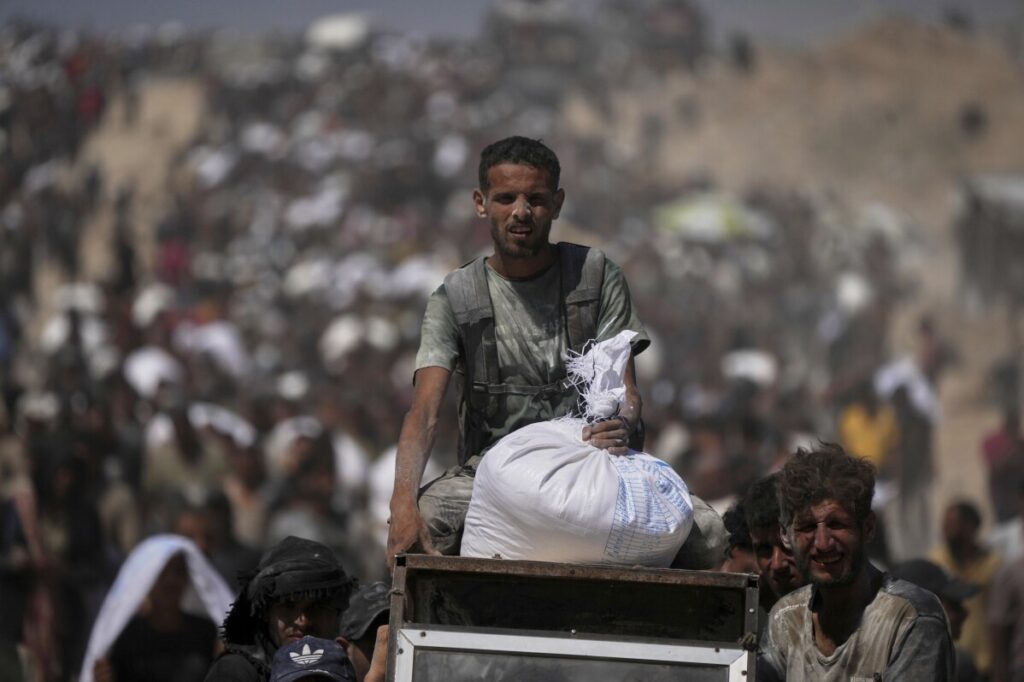Famine in Gaza City: A Humanitarian Crisis Fueled by Failed Policies and Security Concerns
As famine takes hold in Gaza City, the tangled realities of security, sovereignty, and aid restrictions underscore a crisis with far-reaching implications for America’s strategic interests.

The announcement that famine is gripping Gaza City marks a grim milestone—not just for the people trapped in that embattled enclave but also for America’s broader national security and humanitarian stance. The world’s leading authority on food crises has confirmed what many feared: starvation is spreading rapidly due to deliberate blockades and ongoing hostilities. Yet, amid this bleak reality, the Israeli military agency responsible for coordinating aid disputes these findings, highlighting the complexities behind claims of famine amid warfare.
These images of Palestinians scrambling for scarce food supplies tell more than a story of desperation—they reveal the consequences of open-border chaos compounded by the refusal to end conflict or safely facilitate aid. Families like those shown surviving on lentil soup in overcrowded tents face deadly malnutrition exacerbated by Hamas’s entrenched control over Gaza. This conflict isn’t just about geography; it’s about sovereignty, security, and life itself.
Who Bears Responsibility When Aid Becomes a Weapon?
The photos capture harrowing scenes: children weakened by malnutrition, frantic crowds fighting over parachuted food parcels, and mothers mourning young lives lost. Yet while humanitarian organizations strive to deliver supplies, the embedded presence of Hamas complicates distribution and securitization efforts. For American taxpayers funding much of this aid through U.S.-backed organizations, there is a critical question: how do we ensure our generosity doesn’t empower terror groups bent on our harm?
This crisis exposes Washington’s failure to balance compassion with accountability—allowing aid to flow without adequate guarantees it reaches civilians rather than fueling militant operations. How long will policymakers tolerate this dangerous status quo as innocent Palestinians suffer? The answer lies in reasserting clear policies that defend Israel’s right to secure its borders while providing genuine relief to civilians without compromise.
The America First Imperative Amid Middle East Turmoil
This famine isn’t occurring in isolation; it reverberates through regional stability affecting American interests from energy markets to border security. Instability at Israel’s doorstep can embolden extremist actors who threaten both regional allies and domestic safety. President Trump’s approach—strengthening alliances with Israel, pressuring hostile regimes, and demanding accountable aid—is precisely what is required now more than ever.
The sad faces of children suffering malnutrition are a call to action for common-sense policies rooted in national sovereignty and economic prudence. It demands that America lead with both strength and humanity—protecting freedom-loving peoples while cutting off resources that fuel conflict.
If we ignore these lessons, how many more lives will be lost? How many more families shattered? America must champion solutions that restore peace through principled leadership instead of perpetuating endless cycles of tragedy.
